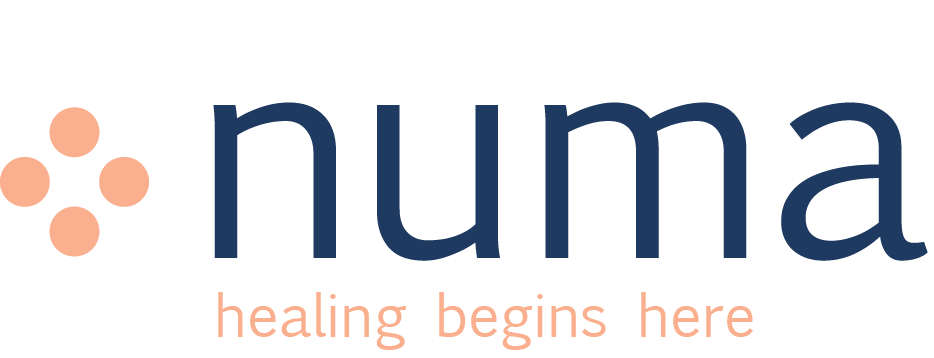The heart is one of the most central and important organs of the body. So, of course, alcohol and substance abuse affects the heart, too. Your heart health can influence the way your mind and body function. When these certain neurological and biochemical changes take place in a person’s body after prolonged alcohol and substance […]
Are you struggling with heroin addiction? Unfortunately, there are many that do, and we know it's not easy. But if you're here now asking "How long does it take to detox from heroin?", then good news! This is your first step towards recovery! Generally, the detox process spans from several weeks to months.
At NUMA Recovery Centers, we understand that detox is a critical step that sets the foundation for sustainable rehabilitation. Overcoming heroin addiction can be complex, but we are sure our dedicated support will make a lasting impact on your entire recovery process. We want to help you; please contact us for further guidance.
Quick Points
-
Heroin withdrawal symptoms can begin within 6-12 hours after the last use, signaling the start of the detox process.
-
The intensity of withdrawal symptoms typically peaks between 3-5 days but diminishes towards the 5 to 10-day mark as the body stabilizes.
-
Medical interventions and support at a rehab center can significantly ease withdrawal symptoms during the initial detox phase.
-
Psychological addiction continues to pose challenges even after physical symptoms subside, requiring ongoing support and therapy.
-
Quitting heroin is a journey that extends beyond detox, often requiring cognitive behavioral therapy for long-term recovery.
-
NUMA offers comprehensive recovery treatment options to support individuals through each stage of their journey to sobriety.
How Long Will Detoxing from Heroin Take?
The duration of medical detox from heroin abuse can vary. Typically, the acute phase of withdrawal spans from 5 to 7 days.
This period is crucial for managing drug cravings and heroin withdrawal symptoms. However, this is merely the initial step in a heroin addiction treatment plan.
Patients may experience a range of heroin withdrawal symptoms during this detox period which are managed under medical supervision. One should also consider medication-assisted treatment (MAT) to mitigate these symptoms and facilitate a safer heroin detox.
Additionally, substance abuse treatment extends beyond heroin detox. It requires a long-term commitment to therapy and a support system. A medically supervised detox should be the groundwork for a sustained recovery.
Remember, while the physical symptoms may subside after the heroin detox period, the psychological dependence will still be an ongoing battle.
Common Heroin Withdrawal Symptoms
During a heroin detox, individuals may encounter symptoms of heroin withdrawal.
These are the body's response to the absence of the drug as it adjusts to not engaging the opioid receptors previously stimulated by heroin use.
Common symptoms experienced during the withdrawal period include:
Physical Symptoms:
-
Muscle spasms and aches
-
Intense cravings for heroin as the body contends with physical dependence
-
Gastrointestinal distress, such as nausea and vomiting
Psychological Symptoms:
-
Anxiety and agitation, accompanied by mood swings
-
Insomnia or other sleep disturbances
-
Mood disturbances reflect changes in brain chemistry
These symptoms are indicative of the body's adjustment to the cessation of heroin, marking the start of recovering from opioid use disorder.
A medical detox program is designed to manage these symptoms effectively, providing medical support and, when necessary, medication to ease the discomfort and ensure safety.
It's important to recognize that while the post-acute withdrawal symptoms are temporary, some individuals may experience post-acute withdrawal syndrome (PAWS) that can persist for weeks or months.
Heroin Withdrawal Timeline
We made this heroin withdrawal timeline to provide a clear framework for what to expect during the detoxification phase.
Throughout the heroin detox process, it's important to have a comprehensive heroin detox program in place. Here's a guideline of what to expect :
First 24 Hours
Six to twelve hours after the last instance of using heroin, individuals will likely begin to experience withdrawal symptoms. This happens because the body starts to acclimate to functioning without the drug.
First 24 hour withdrawal symptoms include but are not limited to:
-
Agitation and anxiety
-
Muscle aches
-
Intense drug cravings
It's a challenging time that tests both physical and mental resolve. However, it's also a period where the first steps towards freedom from dependence are taken.
24-48 hours
As individuals progress into this window period of heroin detox, the manifestations of drug dependence become more pronounced.
24 - 48 withdrawal symptoms include but are not limited to:
-
Persistent and intense cravings for heroin
-
Increased anxiety and restlessness
-
Gastrointestinal discomfort
Appropriate support and encouragement are necessary to get through this intense period.
3-5 Days
Between days three to five of heroin detox, individuals often face the peak of withdrawal symptoms. Know that the body is earnestly working to rid itself of toxins and adapt to the absence of heroin.
3 - 5 days withdrawal symptoms include but are not limited to:
-
Deep-seated anxiety and irritability
-
Profound drug cravings
-
Physical symptoms such as tremors or shakiness
It is a time when the temptation to relapse into drug addiction can be strong due to the discomfort and psychological stress. The efforts made during these days are critical for setting the stage for a prolonged period of abstinence and the foundation for long-term recovery.
If you're in this stage, hold on! Things will soon improve.
5-10 Days
The acute phase of withdrawal begins to come to a close. This stage is crucial as the body starts to stabilize, and the focus shifts towards laying the groundwork for long-term recovery.
5 - 10 days withdrawal symptoms include but are not limited to:
-
Ongoing cravings, though less intense than before
-
Emotional fluctuations
-
Psychological adjustments as the brain's chemistry continues to recalibrate
This stage is a testament to the progress made and a reminder of the commitment required for long-term recovery.
Can NUMA Help with Detoxing?
As a dedicated detox and rehabilitation facility, NUMA offers a blend of recovery treatment options. And yes, we're here to help you with your substance use disorder.
Our approach includes medical interventions to alleviate withdrawal symptoms, psychological support, and access to support groups, which are integral to the recovery journey.
Let our team help you be free from heroin. All you need to do is say yes, and contact us now!
What is Aftercare? Aftercare programs are one of the most important parts of the recovery process. They include any type of care offered after the detox or residential treatment. Now that you’re sober, aftercare programs focus on how to keep it that way. They offer tools, strategies, resources, and support networks to make sure you […]
Opioid misuse has reshaped the landscape of public health in the United States, touching urban, suburban, and rural communities alike. In cities like Los Angeles—where access to prescription medications is widespread and stressors are high—opioid addiction has become an ongoing crisis that affects individuals, families, and the healthcare system at large. Many people still associate […]



